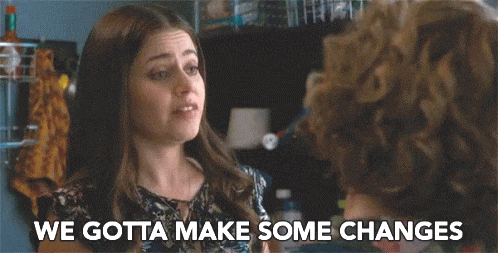Passive-aggressive people can be difficult to work with. They hint at what they need and want instead of saying it clearly. They may act disappointed, frustrated, or even angry when you don’t pick up on their hints.
This is the kind of coworker who complains instead of cooperates. Rolls their eyes instead of rolling with the punches. Holds onto memories of perceived wrongs others committed instead remembering all they have to be grateful for.
If a passive-aggressive coworker believes you’ve treated them unfairly, they might punish you by giving you the silent treatment, shutting you out of strategic conversations, or withholding information you need to succeed at your job.
Dealing with a passive-aggressive coworker is hard — but not impossible. Here are ways you can react differently to this difficult situation.
Don’t respond in kind
Your coworkers may not be in control of their passive-aggressive behavior. Sometimes stress, medications, or mental illness can cause outbursts. Or your coworker might just be a jerk.
No matter their reason, responding to passive-aggressive behavior with the same kind of antagonistic disrespect will not solve the problem. More likely you will be giving your coworker exactly what they want: getting you to act out the anger they feel inside.
Instead, respond with a dose of empathy and infinite patience. If your coworker tends to send emails that start with one of the classically passive-aggressive phrases like “Per my last email,” “Just checking in,” or “Friendly reminder,” keep your responses straightforward. Try simply acknowledging the emails they sent, letting them know when you’ll be done with the outstanding task, or thanking them for the reminder.

Try different ways of communicating
Sometimes people resort to passive-aggressive behavior because they hope to avoid direct conflict. But, by relying on hints, sulking, procrastination, and veiled insults, they may create the very disagreement and confusion they were trying to avoid. Change up how and where you communicate with each other to see if it helps clear the air.
If face-to-face meetings tend to go poorly, switch to more email conversations to give the other person more time to think carefully about what they want to say. As a bonus, they may not be brave enough to put all their hostile thoughts down in writing for posterity.
Or, change sit-down meetings to walk-and-talks. Walking side by side means not having to make a lot of eye contact, which can make the conversation feel less intense and confrontational. A change of scenery outside the office can also lower stress that triggers negative emotions.

Set firm boundaries
Setting boundaries at work is how you protect your time, energy, emotions, and talents for what truly matters. Passive-aggressive people who are intentionally unclear and unreasonable are disrespecting you and your professionalism.
For example, if your coworker is consistently late delivering data you rely on to do your job, calmly let them know that you’d like to work with them to get things back on schedule. Keep track of when things are due to you, from whom, and when you actually get them. See if you can get your coworker’s deadline moved up a few days to give you more of a cushion.
And make sure your boss knows there’s a problem, and how you’re trying to deal with it.

Ignore the behavior
You can’t change other people, but you can change how you respond to them — and whether you respond at all. Your coworker may be using passive-aggressive behavior to try to get a reaction out of you so they can get you in trouble. Don’t play into their manipulative mind games.
Ignore the behavior, but not the person. Be professional and emotionally neutral, and they’ll likely lose interest in baiting you. When you have to interact with your problematic coworker, try to have someone else there as a witness to the behavior.
If you believe your coworker will not stop trying to sabotage you and your career, keep a record of their comments and your conversations in case you need to escalate matters to their manager and human resources.

Here’s your chance to share your advice
Have you had to deal with a passive-aggressive person? Let us know how you were able to navigate this coworker challenge in the comments.
Lauren Girardin is a marketing and communications consultant, freelance writer, and trainer based in San Francisco. She helps organizations engage their communities and tell their stories. Her website is laurengirardin.com and you can connect with her on Twitter at @girardinl.





This is all part of the greater topic of holding critical conversations – thanks for the great suggestions.